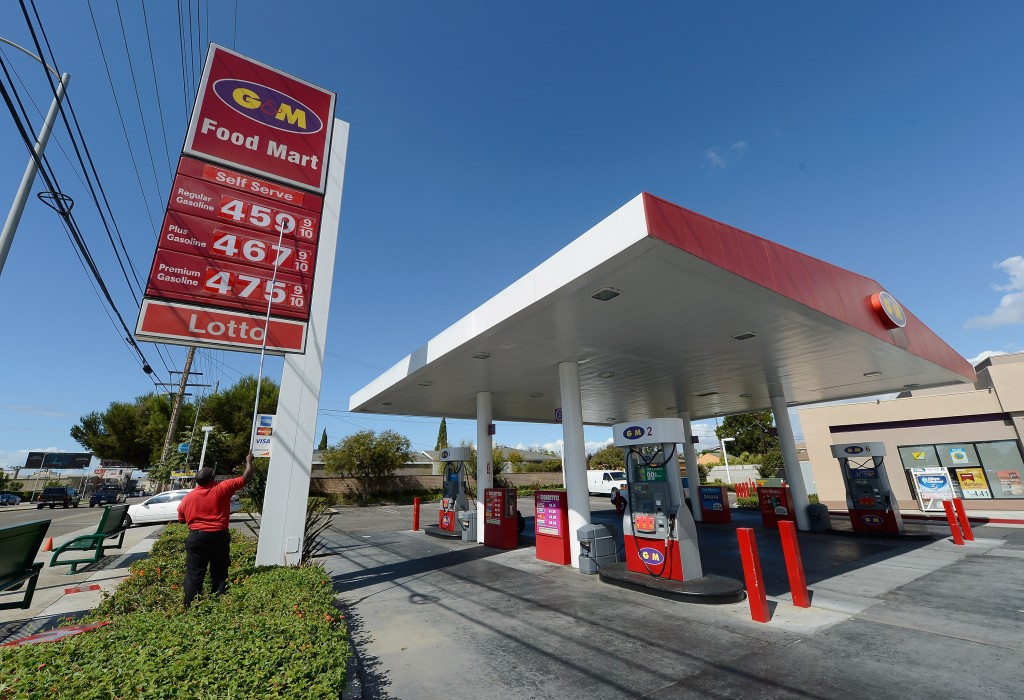Hope everyone had a nice 4th of July! Here’s what’s happening in energy news. West Texas Intermediate crude is trading near a 14-month high, spurred by unrest in Egypt and a sunny outlook for US economic growth. [Bloomberg] And Brent hit a three-month high today after Egypt’s army declared a state of emergency in areas… Keep reading →
OPEC
Sign up and get Breaking Energy news in your inbox.
We will never sell or share your information without your consent. See our privacy policy.Heading into the Fourth of July holiday weekend, the trade group representing the US refining industry had some choice words about the impact of US regulations on gasoline prices. “Our industry and the economy are taking a hit with RFS [renewable fuel standards], air pollution regulations and Cafe [corporate average fuel efficiency] standards, which all… Keep reading →
Statoil will assume its first shale operatorship outside the United States through a deal to up its stake in PetroFrontier’s Australian permits to as much as 80%. The Norwegian company will have to spend $160 million on exploration through 2016 under the deal. [Reuters] Opec left its 2013 global oil demand forecast unchanged in its… Keep reading →
US tight oil production has already helped to shave somewhere on the order of $20-$25 per barrel from Brent crude oil prices, and continued output growth has the potential to further impact global pricing, according to Energy Information Administration (EIA) Administrator Adam Sieminski. The uptick in US oil production – which rose to 6.5 million… Keep reading →

It’s a commonly used analogy for the global oil market: Crude oil is fungible and supplies from
producing countries and companies enter a giant pool that is drained by a wide variety of consumers. Analysts, academics and politicians often talk of the global oil trade in this manner, saying that additional supplies of oil – regardless of where they originate – are good for US energy security because increased volumes available on the global market should exert downward price pressure. Well, perhaps unsurprisingly, it’s not that simple.
The situation is clarified in a recent journal article titled “Crude Oil Is Not Fungible, Where It Comes from Does Matter, and Global Markets Are More Fragmented Than Many Think.” The piece, written by Jonathan Chanis, a long-time commodity trader, finance expert and current Columbia University professor, appeared in American Foreign Policy Interests: The Journal of the National Committee on American Foreign Policy. Keep reading →

The Organization of Petroleum Exporting Countries Tuesday warned that expectations of growth in non-OPEC oil supply this year–seen as essential to meeting global oil demand in the long term–were subject to a high level of risk, particularly in the U.S.

It appears increasingly likely that Venezuelan President Hugo Chavez will not return to power following his latest cancer treatment in December and analysts are considering the implications of a post-Chavez regime for one of the largest crude oil producers in the world.
Venezuela holds some of the world’s largest oil reserves and is the second largest Opec oil exporter to the US. Oil revenue accounts for a bulk of the government’s income and has largely been used to fund Chavez’s wide-ranging social programs. But the country’s oil industry – which is essentially state-owned company PDVSA – has been struggling with declining production rates at mature fields, along with other problems. Keep reading →

The New York Energy Forum held its annual kickoff meeting last Thursday night, where leading market analysts presented their views about where oil and natural gas markets are headed this year. Sanctions-bitten Iranian crude output, the interplay of fundamentals and financial factors in oil markets and the US petroleum output boom were all topics of discussion.
Global benchmark crudes West Texas Intermediate and Brent have been range bound for the past two years and the speakers expected little change in 2013, despite an uptick in global oil demand. Keep reading →

As some of the world’s foremost energy experts from business, academia and government gathered in Austin, Texas for a major energy conference, the Northeastern US was still reeling from Hurricane Sandy’s devastation that took lives, homes and disrupted power and fuel delivery for millions of people. This stark reminder of how fragile US energy infrastructure can be makes the conference theme, “Transition to a Sustainable Energy Era: Opportunities and Challenges,” all the more timely and important.
The 31st US Association of Energy Economics/International Association of Energy Economics North American Conference kicked off this morning with an opening plenary session that was appropriately titled, “Putting the ‘Sustainable’ in Sustainable Energy Future.” Keep reading →

US dependence on imported crude oil is expected to drop to 41% this year, but it could drop even faster, and even to zero, says Adam Sieminski, Administrator of the Energy Information Administration.
EIA’s forecast is a substantial reduction even from 2011, when imports met 45% of US demand, and way below the record year of 2005 when the US imported 60%. Analysts agree that discoveries of new US resources, improvements in US auto fuel economy, and lower overall demand due to the recession have combined to reduce the need for imports. Keep reading →




